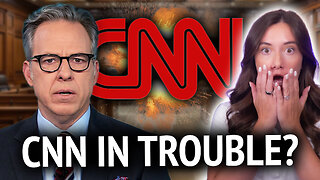Premium Only Content

Ukraine Proxy war is a war of attrition, money laundering Hot spot , innocent people suffering
Proxy wars are complex conflicts characterized by the involvement of external actors supporting opposing sides in a dispute, without directly engaging in combat themselves. Instead, they utilize local or regional forces as surrogates to advance their interests. These wars have been a recurring feature of global geopolitics, with notable examples including the Korean War (1950-1953), the Vietnam War (1955-1975), and the Syrian Civil War (2011-present). This essay aims to delve into the intricacies of proxy warfare, detailing the motivations, strategies, and consequences that define this form of conflict.
A. Geopolitical Interests:
Proxy wars arise from the pursuit of geopolitical interests by major powers. These interests could include securing access to strategic resources, countering the influence of rival nations, or maintaining regional stability. For instance, during the Cold War, the United States and the Soviet Union engaged in numerous proxy conflicts to extend their spheres of influence.
B. Ideological Competition:
Ideological differences between major powers can also fuel proxy wars. Supporting sympathetic factions in other countries allows them to spread their political, economic, or social ideologies. The ideological struggle between communism and capitalism was a central factor in many proxy conflicts during the 20th century.
C. Economic Considerations:
Economic interests, such as access to markets, trade routes, or investment opportunities, often underpin proxy interventions. Control over strategic locations can greatly benefit a nation's economic interests, prompting involvement in conflicts like the Suez Crisis (1956) and the Iran-Iraq War (1980-1988).
II. Actors Involved (Approx. 250 words)
A. Primary Actors:
Sponsor States: These are the major powers that provide support to one side of the conflict. They supply military, financial, and logistical aid to their chosen proxies. Examples include the United States supporting anti-communist forces in Afghanistan during the 1980s and Russia backing the Syrian government in the ongoing Syrian Civil War.
Proxy Forces: These are local or regional groups that receive backing from the sponsor states. They may be rebel factions, insurgencies, or governments in power. The level of autonomy and control these proxies have over their operations varies widely.
B. Secondary Actors:
Other Regional Players: These are neighboring states or regional powers that may become involved in the conflict due to their own interests or security concerns. They may directly support one side, exacerbating the proxy nature of the conflict.
Non-State Actors: Paramilitary groups, militias, or ideological organizations can also play a role in proxy wars. They may have their own agendas and contribute to the complexity of the conflict.
III. Strategies Employed (Approx. 250 words)
A. Covert Support:
Sponsor states typically avoid direct involvement in combat, opting instead for covert means of support. This may include supplying weapons, funding, and intelligence to their proxies. Covert operations help maintain deniability and reduce the risk of escalation.
B. Training and Advising:
Sponsor states often provide training, advisors, and even special forces to assist their proxies in combat. This can enhance the effectiveness and capabilities of local forces.
C. Psychological Warfare:
Information warfare, propaganda, and psychological operations are employed to influence the perceptions of local populations, weaken the enemy's resolve, and gain support for the proxy force.
D. Diplomatic Maneuvering:
Sponsor states engage in diplomatic efforts to garner international support for their chosen side and to apply pressure on the opposing faction. This can involve leveraging alliances, sanctions, or diplomatic isolation.
IV. Consequences and Implications (Approx. 250 words)
A. Escalation and Prolonged Conflicts:
Proxy wars can escalate due to the involvement of multiple actors with diverse interests. This complexity can lead to protracted conflicts, as seen in Afghanistan, where the Soviet intervention eventually drew in various regional and international players.
B. Humanitarian Impact:
Local populations often bear the brunt of proxy conflicts. Civilians are subjected to displacement, violence, and economic hardship, creating significant humanitarian crises.
C. Regional Instability:
Proxy wars can destabilize entire regions, as neighboring countries may be drawn into the conflict or face spillover effects. This instability can persist long after the proxy war has ended.
D. Legacy and Post-Conflict Reconstruction:
Proxy wars leave lasting legacies, influencing the political, social, and economic landscape of affected nations. Post-conflict reconstruction efforts are often necessary to rebuild infrastructure and institutions.
#mikeinthenight #mikemartins
-
 4:14:30
4:14:30
Mike Martins Channel
8 days ago $2.76 earnedMike in the Night E588 - Elon Musk is a major Fraud, Meta's Mark Zuckerberg is crap, Newsom Demands X Censor , Next weeks News Today , Headlines, Call ins
3.09K40 -
 LIVE
LIVE
Graham Allen
2 hours agoDADDY’S HOME! Trump Lands Hamas Hostage Deal!! While Biden Tries To Take Credit! PATHETIC
7,123 watching -
 LIVE
LIVE
Matt Kohrs
8 hours agoBreaking Market News, Markets Breakout & Live Trading $1M || The MK Show
1,358 watching -
 35:50
35:50
BonginoReport
3 hours agoMy Dad's Senate Hearing - Kids, Chaos, and Everything! (Ep.120) - 01/16/2025
24.3K16 -
 1:24:14
1:24:14
Game On!
14 hours ago $3.41 earnedTaylor Swift SHOCKS Chief fans! Does NOT want Travis Kelce to retire!
25.9K6 -
 4:27
4:27
Reforge Gaming
13 hours agoTHIS will not save Ubisoft.
42.4K6 -
 7:35
7:35
Tactical Advisor
1 day agoNEW Springfield Prodigy Compact (FIRST LOOK)
67.8K6 -
 16:45
16:45
IsaacButterfield
1 day ago $6.28 earnedWoke TikToks Are DESTROYING The World
37.1K31 -
 1:09:27
1:09:27
State of the Second Podcast
18 hours agoThis is Why We Don’t Trust Politicians (ft. @stones2ndsense)
31.2K4 -
 10:19
10:19
Chrissy Clark
14 hours agoCNN’s BILLION Dollar Defamation Trial
34.2K11